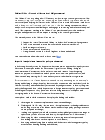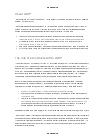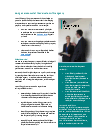The Government Economic Fast Stream Scheme

Fast Stream Assistant Economist appointments are at graduate entry level or for those with less than 3 years work experience as a professional economist.
Documents

Department for Business, Energy & Industrial Strategy Job Specification
PDF, 221KB, 2 pages
This file may not be suitable for users of assistive technology. Request an accessible format.
If you use assistive technology (such as a screen reader) and need aversion of this document in a more accessible format, please email [email protected].Please tell us what format you need. It will help us if you say what assistive technology you use.

Committee on Climate Change
PDF, 253KB, 3 pages
This file may not be suitable for users of assistive technology. Request an accessible format.
If you use assistive technology (such as a screen reader) and need aversion of this document in a more accessible format, please email [email protected].Please tell us what format you need. It will help us if you say what assistive technology you use.

Cabinet Office Job Specification
PDF, 198KB, 3 pages
This file may not be suitable for users of assistive technology. Request an accessible format.
If you use assistive technology (such as a screen reader) and need aversion of this document in a more accessible format, please email [email protected].Please tell us what format you need. It will help us if you say what assistive technology you use.

Department for Communities and Local Government Job Specification
PDF, 114KB, 1 page
This file may not be suitable for users of assistive technology. Request an accessible format.
If you use assistive technology (such as a screen reader) and need aversion of this document in a more accessible format, please email [email protected].Please tell us what format you need. It will help us if you say what assistive technology you use.

Department for Culture Media & Sport Job Specification
PDF, 212KB, 2 pages
This file may not be suitable for users of assistive technology. Request an accessible format.
If you use assistive technology (such as a screen reader) and need aversion of this document in a more accessible format, please email [email protected].Please tell us what format you need. It will help us if you say what assistive technology you use.

Department for International Development Job Specification
PDF, 399KB, 3 pages
This file may not be suitable for users of assistive technology. Request an accessible format.
If you use assistive technology (such as a screen reader) and need aversion of this document in a more accessible format, please email [email protected].Please tell us what format you need. It will help us if you say what assistive technology you use.

Department for Transport Job Specification
PDF, 235KB, 2 pages
This file may not be suitable for users of assistive technology. Request an accessible format.
If you use assistive technology (such as a screen reader) and need aversion of this document in a more accessible format, please email [email protected].Please tell us what format you need. It will help us if you say what assistive technology you use.

Department for Work and Pensions Job Specification
PDF, 203KB, 2 pages
This file may not be suitable for users of assistive technology. Request an accessible format.
If you use assistive technology (such as a screen reader) and need aversion of this document in a more accessible format, please email [email protected].Please tell us what format you need. It will help us if you say what assistive technology you use.

Food Standards Agency Job Specification
PDF, 232KB, 1 page
This file may not be suitable for users of assistive technology. Request an accessible format.
If you use assistive technology (such as a screen reader) and need aversion of this document in a more accessible format, please email [email protected].Please tell us what format you need. It will help us if you say what assistive technology you use.

HM Revenue & Customs Job Specification
PDF, 242KB, 2 pages
This file may not be suitable for users of assistive technology. Request an accessible format.
If you use assistive technology (such as a screen reader) and need aversion of this document in a more accessible format, please email [email protected].Please tell us what format you need. It will help us if you say what assistive technology you use.

Health & Safety Executive Job Specification
PDF, 415KB, 2 pages
This file may not be suitable for users of assistive technology. Request an accessible format.
If you use assistive technology (such as a screen reader) and need aversion of this document in a more accessible format, please email [email protected].Please tell us what format you need. It will help us if you say what assistive technology you use.

Ministry of Defence Job Specification
PDF, 207KB, 2 pages
This file may not be suitable for users of assistive technology. Request an accessible format.
If you use assistive technology (such as a screen reader) and need aversion of this document in a more accessible format, please email [email protected].Please tell us what format you need. It will help us if you say what assistive technology you use.

Ministry of Justice Job Specification
PDF, 202KB, 3 pages
This file may not be suitable for users of assistive technology. Request an accessible format.
If you use assistive technology (such as a screen reader) and need aversion of this document in a more accessible format, please email [email protected].Please tell us what format you need. It will help us if you say what assistive technology you use.

Office for National Statistics Job Specification
PDF, 204KB, 3 pages
This file may not be suitable for users of assistive technology. Request an accessible format.
If you use assistive technology (such as a screen reader) and need aversion of this document in a more accessible format, please email [email protected].Please tell us what format you need. It will help us if you say what assistive technology you use.

Valuation Office Agency Job Specification
PDF, 299KB, 2 pages
This file may not be suitable for users of assistive technology. Request an accessible format.
If you use assistive technology (such as a screen reader) and need aversion of this document in a more accessible format, please email [email protected].Please tell us what format you need. It will help us if you say what assistive technology you use.

Example EAC short answer questions
PDF, 218KB, 5 pages
This file may not be suitable for users of assistive technology. Request an accessible format.
If you use assistive technology (such as a screen reader) and need aversion of this document in a more accessible format, please email [email protected].Please tell us what format you need. It will help us if you say what assistive technology you use.

Smoking Ban Topic
PDF, 161KB, 10 pages
This file may not be suitable for users of assistive technology. Request an accessible format.
If you use assistive technology (such as a screen reader) and need aversion of this document in a more accessible format, please email [email protected].Please tell us what format you need. It will help us if you say what assistive technology you use.
Details
The Government Economic Service Fast Stream Scheme is now closed.
Eligibility Criteria
To apply for the Fast Stream, you should already have, or hope to obtain a first or upper second class honours degree in economics, or a postgraduate degree in economics. At least 50% of the course modules must be in economics. You must have studied both macro and microeconomics to qualify. If you graduated more than 5 years ago, you must give examples in the competency section of the application form, of economic articles you have read in depth to demonstrate that you have maintained competency in economics.
Please note that some departments require candidates to have a UK footprint for 3 years in order to get security clearance i.e. HO, HMT, MHCLG, MoJ and some other departments.
What do Economists do?
From providing data to help alleviate child poverty to appraising new transport schemes your work will affect the daily lives of millions of people. Indeed, the key role played by economists in most government departments emphasises the importance attached to economic advice throughout the Civil Service.
What would I do?
As a government economist you could work in areas like macroeconomic modelling, competition policy, international financial issues, labour market trends, taxation, housing benefits, local government finance, public health and criminal justice, to name but a few. There are also research opportunities, where you’ll be in close contact with universities and researchers.
Economists working in departments and agencies
To find out more on the key issues for economists in some of the departments, as well as contact details please browse below:
- Cabinet Office
- Committee on Climate Change
- Department for Culture Media and Sport
- Department-for-Communities-and-Local-Government
- Department for Energy and Climate Change
- Department for International Development
- Department for Transport
- Department for Work and Pensions
- Food Standards Agency
- HM Revenue and Customs
- Health and Safety Executive
- Ministry of Defence
- Ministry of Justice
- Office for National Statistics
- Valuation Office Agency
Allocation to a Government Economic Service department
The allocation process can seem less transparent than other parts of the recruitment process, so we hope this explanation of how the allocation process works is helpful. Much depends on the very simple factor of when you can start work.
It is worth noting that the only time you are placed in a department is your first posting in the GES. After that it is up to you and your manager how often you move about and which department you apply to move to. It is also worth remembering that starting your career in a department which is not your first choice can be very rewarding, particularly in terms of broadening your experience and furthering your career.
We always look at candidate’s preferences on the application form. However, over 50% of applicants put Her Majesty’s Treasury (HMT), Department for International Development (DfID) or the Diplomatic Service (DS) as their first choice. These three departments do not make up 50% of the jobs on offer so if you put one of these as your first choice you are less likely to be placed there.
If you choose departments other than HMT, DfID, DS in your top three choices we are much more likely to be able to assign you to one of your preferred departments. There are some smaller departments which rarely get mentioned by applicants so you may be offered a department that you have not chosen. If you are allocated to a department which is not a choice we urge you to visit the department to talk to the economists about the work before making your decision.
Please note that some departments require candidates to have a UK footprint for 3 years in order to get security clearance i.e. HO, HMT, MHCLG, MoJ and some other departments.
Also, for candidates assigned to HMT – HMT has a start date of April or September.
How much would I earn?
Salaries vary between departments. The average starting salary in London is about £28,000 for someone with a first degree. Some departments do pay more to reflect relevant postgraduate qualifications.
Diplomatic Service
You can also opt to join the Diplomatic Service as an economist. As well as having the requisite skills for the GES you will need to demonstrate that you can, with appropriate training and experience, learn how to build networks of key contacts, which form the core of diplomatic work.
Deferrals
Candidates who pass the Economic Assessment Centre and the Fast Stream Assessment Centre may only defer appointment to complete a postgraduate degree in economics or to complete the Overseas Development Institute Fellowship.
Deferrals are granted for a maximum of 2 years. Candidates who do not take up appointment within this period will need to re- apply for the economist fast stream scheme. Candidates cannot defer appointment from the Diplomatic Service option.
What is an Economic Assessment Centre (EAC)?
It is a half-day Assessment Centre to assess a candidate’s economics skills against set criteria. You should be aware that there may be periods of downtime in your timetable when you do not have to complete any exercises. Each candidate completes the same series of exercises with the same amount of time to prepare, so time delays will not disadvantage or advantage you.
There are 3 separate economics exercises to complete at the EAC. The following guidance is aimed at helping you prepare beforehand so that you can demonstrate your full potential on the day. You will be asked to produce your written work on a computer.
You will be assessed against 3 competencies throughout the EAC:
- Knowledge of Economics
- Application of Economics
- Communication.
You must pass all three competencies to be successful at the Economist Fast Stream.
Preparation beforehand
More information can be found here. This is a short video by our Chief EAC Assessor.
A common mistake among applicants is to think that they have to impress the assessors with advanced techniques. Assessors will give you the chance to discuss your specialist studies, but they are looking for a firm grasp of the fundamentals. They want to see that you can apply them, even to unfamiliar topics. Learning advanced techniques without understanding will not get you into the GES, whereas critical facility is highly regarded.
So in terms of reading for the EAC process you may revise a ‘strongest area’ but also make sure that you are familiar with the broad content covered in the latest editions of excellent introductory tomes such as by Begg et al or Sloman. A good knowledge of core intermediate micro will also help, such as in Nicholson or Varian (Intermediate). Cost benefit analysis (CBA) is used extensively in government but for EAC you are expected only to understand its roots in welfare economics rather than use advanced CBA techniques. So be well versed in deviations from efficiency and distributional concerns that could lead to policy interventions. Less important, elementary econometrics may assist you and perhaps intermediate macro as in Blanchard or Carlin and Soskice.
Of all these books the first year introductory texts and intermediate micro are the most important. But even these won’t help if you can’t apply this knowledge. For example, you may have memorised the formula for price elasticity of demand but what is the formula when elasticity is applied to the length of an elephant’s trunk with respect to the pull of an alligator? You can define opportunity cost but can you apply this to an asset? You may know MC=MR as a profit maximising condition but what if there are no costs? Can you draw on economics to shed light on the pros and cons of charging for entry to museums? Should water be metered? Why don’t lampposts have slot meters? What economic concepts are relevant to a smoking ban or the provision of early childcare?
At the EAC you will be asked to produce a piece of written work on a given topic, a technical report. At least 2 weeks before the date of your EAC you are given the topic to prepare for and perhaps research, this will be included in your web based invitation message. We expect this to take no more than 10 hours to research. Before EAC, you should practise writing your report so that you can maximise the use of the 30 minutes you will be allowed on the day. This invitation will also give you a range of sources to use when researching this topic. Please note you will not be allowed to take pre-prepared material into the test room.
Then at the interview, you will be asked to give a presentation based on your technical report. For the purposes of the presentation alone you should assume you are presenting to non-economists and therefore avoid using overly technical language.
At the Economic Assessment Centre (EAC)
The whole Assessment Centre is done under examination conditions. This means you must not take any materials (books, mobile ‘phones or papers) into the examination/interview rooms. Copies of your completed technical report will be given back to you by the Fast Stream Team before the interview and you may use these to prepare for the interview and take them into the interview room. You must not consult any books/internet sites between completing your written economics exercises and your interview. Any candidate doing so will be disqualified. All Assessment Centre materials are marked “Restricted” and must not be removed from the building.
- Technical report.
For this exercise you are encouraged to ‘showcase’ your knowledge, technical grasp and understanding of the relevant economics. For example you will need to demonstrate (briefly) that you understand and can apply the relevant principles, theory and evidence. You may set the scene with memorised facts and statistics, but it is not a good use of your time to do much of this. Concentrate instead on communicating how economic theory and evidence can inform an assessment of the potential impacts of the policy.
Remember you will be tested verbally on what you write here as part of your interview, so you are advised not to attempt to exaggerate your command of economics. You may use freehand diagrams or equations where you wish, but these must be clear, labelled and explained as required. You will have just 30 minutes to complete this report at EAC.
- Short answer questions.
This will be a set of questions (10 in total) testing your breadth of macro, micro and to a much lesser extent a purely ‘technical’ topic such as simple descriptive and/or inference statistics. For guidance see on what we can expect from an honours graduate in economics see here.
You should attempt to answer all ten questions, but as you have only 30 minutes overall your answers must be brief.
The best strategy is to scan the questions through so that you complete answers for those items that you can answer most easily.
Avoid ‘getting stuck’ on a particular question or writing too much for one answer. Above all, don’t be discouraged as there is a lot you will not know, just press onto the next question, the pass mark is only 40 per cent and will have a further opportunity to demonstrate the breadth of your knowledge during the interview
N.B. The first two exercises are done back to back, this means you will spend one hour producing your written work on a PC.
The PC will not have spell-check but you will not be penalised for spelling mistakes unless they are predominant throughout the paper. Obviously, words have to be discernable and errors of grammar may be marked down e.g. not being able to distinguish between ‘there’ and ‘their’.
- Presentation
For this exercise you are asked to turn your technical report into a presentation, translating it for a non-economist. You should practice doing this before your EAC.
At EAC, your technical report will be returned to you before your interview. In the presentation you will need to make a policy recommendation. The presentation is at the start of your interview and should last for 10 minutes and you will be stopped if you over run. It is an oral presentation and there are no facilities for Power Point or flipcharts. You may stand or sit to do the presentation. The interview board will comprise one academic economist and one government economist or two government economists. For the purposes of the presentation you should assume that the audience are not economists and therefore avoid using overly technical language or assuming a prior knowledge of economics. These assessors will then ask you questions on your presentation and reports. You may answer all verbal questions assuming interviewers are economists.NB There should be a clear distinction between the technical report and your presentation as they are intended for different audiences. For your presentation you must not merely read out your technical report.
- Interview
This will follow on directly from the presentation and will also cover your short answer questions paper (including perhaps additional questions), and technical report. You will also be asked to name your ‘strongest area’ for questioning on by the assessors. Pick an area that is not too broad and not too narrow. For example, ‘Macro’ is too broad and ‘Gauss Markov conditions’ too narrow. Inflation, monetary policy, macro-stability, growth, international trade, labour markets would all be fine, but you are not limited to these topics. Again, do not aim at choosing an advanced the topic merely to impress, it is far more important to demonstrate a deep understanding of the fundamentals. There may also be a question on a topical issue. Again, the Board is interested in the economic theory and application (not the politics) and you might need to demonstrate your ability to think things through from first principles.
During the interview you may assume you are speaking to economists. The presentation and interview will take an hour in total.
The guidance in these topics does not necessarily reflect in any way the views of the GES and is not in any sense a government statement.
- Smoking ban topic
- Example short answer questions for EAC
You’ll also have to answer ten Short Answer Questions at the EAC. You’ll have 30 minutes. All questions carry the same marks. You’ll be able to use freehand diagrams where you wish, but these must be clear, labelled and explained as required.
To find out more about the Civil Service Fast Stream click here.
Published 23 September 2016
Last updated 7 November 2018 + show all updates
- Changed line above eligibility criteria to The Government Economic Service Fast Stream Scheme is now closed.
- HM Revenue and Customs Job Specification updated.
- We have changed the first sentence under detals and added a sentence at the end of the opening paragraph under “Allocation to a Government Econbomic Service Department.”
- amended application end date
- scheme dates added
- First published.











Responses